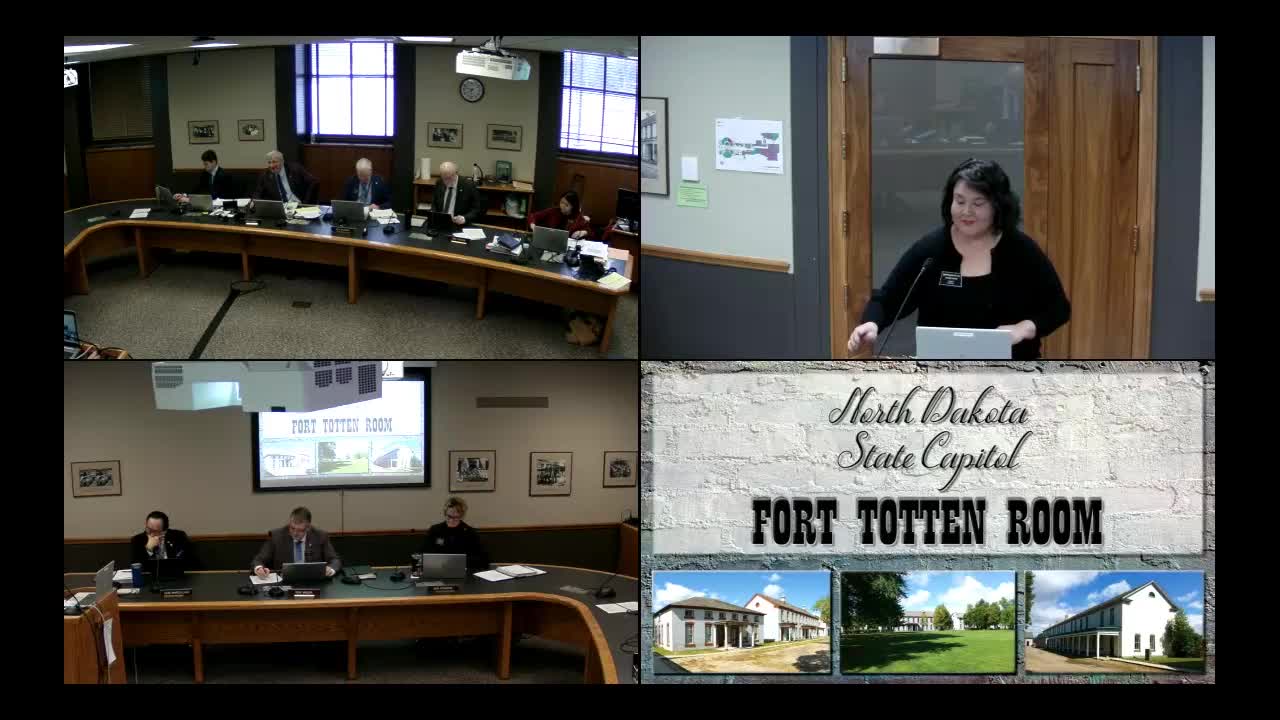Senate committee hears bill to study taxation of tribal lands; supporters urge immediate, thorough review
Get AI-powered insights, summaries, and transcripts
Subscribe
Summary
Representative Jamie Davis asked the Senate Finance and Tax Committee to approve a legislative management study of tribal land taxation during the 2025–26 interim. Tribal members and an enrolled landowner urged a prompt study and suggested stronger language and early timing; no committee vote was taken.
Representative Jamie Davis introduced House Bill 1563, a proposal to direct legislative management to study taxation of land within reservation boundaries during the 2025–26 interim, saying the study is intended to clarify how state tax policy interacts with federal law and tribal sovereignty.
"Taxation on tribal lands is a complicated and often misunderstood issue that sits at the intersection of federal law, state authority, and tribal sovereignty," Davis said. He told the committee the study would review federal laws and court decisions, assess state property tax exemptions, analyze compact and jurisdictional issues, and engage tribal governments and legal experts to produce recommendations for the next legislative assembly.
Senator Patton asked whether fee-simple land within a reservation pays property tax and whether trust land is exempt; Davis confirmed fee-simple land is subject to property tax while land held in federal trust is not. Senator Wallin asked whether the study would examine compacts, distinctions among allotted, tribal and fee lands, and different types of taxes; Davis said the intent is to gather a comprehensive picture and that the study should include those elements.
Todd Hall, an enrolled member of the Three Affiliated Tribes (Fort Berthold Indian Reservation), testified in favor and asked that the bill’s language be changed from "consider studying" to "shall study" to make the study mandatory rather than discretionary. Hall urged earlier conduct of the study and noted the differences among allotted lands, tribal lands held in common, and deeded fee lands. He described local concerns that some residents within reservation boundaries pay state taxes but do not receive county or state services, and he said existing oil tax and other agreements with the state may have constitutional or procedural problems; he urged a prompt, thorough review. "This study is very needed because I'm confident that through this study, it'll be found that the oil and tax agreements ... are unconstitutional because they did not follow proper legal channels and protocol," Hall said.
No committee vote was taken on HB 1563 during the hearing. Committee members indicated they would "digest" the testimony and likely revisit the bill at a later hearing.
